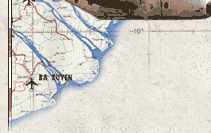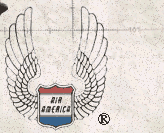Home Page : About Air America : Oral History Project Last Updated on June 16, 2005 Air America Oral History Project The purpose for this page is to provide general guidance on how to conduct oral history interviews. This can include interviews with CAT, Air America, military, and government veterans, as well as other civilians and family members who served and lived in Southeast Asia during the Vietnam War. If you have any questions about this project or the content of this page, please contact webmaster@air-america
1. What is an oral history interview? 2. What should I do to prepare for an interview? 3. What equipment should I use to record the interview? Where should I conduct the interview? Should I interview more than one person at a time? 5. How much information should we discuss in the interview and how long should the interview be? 6. What should I do with the interview recordings when the interview is complete? 7. Do we need to sign an interview release? 8. Where can I listen to interviews with other Air America veterans? 9. Where can I learn more about conducting oral history interviews? 10. Who can I contact if I have more questions?
1. What is an oral history interview? An oral history interview is a means of preserving the experiences of a person through recorded interviews.
2. What should I do to prepare for an interview? Both people involved in the interview need to undertake a certain level of preparation. The Narrator: The person being interviewed. Provide the narrator with a list of questions that they can review in preparation for their interview. Reviewing some specific questions might act as a mnemonic trigger - allowing the narrator to remember more than if they are asked the same question without preparation. (We will provide a sample questionnaire here soon). Urge the narrator to review certain materials before the interview. If they have diaries, letters, photos, or other related materials, reviewing them in the weeks or months before the interview will certainly assist in remembering more detail about events. The Interviewer: The person conducting the interview. You must read over any responses from the narrator to the list of questions you provided. This will help you ask more informed questions during the interview. You must also choose the equipment and select an appropriate interview location. You should practice using the equipment and have backup materials in case they are needed.
3. What equipment should I use to record the interview? The recording equipment you use will depend on your budget and whatever you might already have available. In essence, you will have two primary choices - audio record or video/audio record. Here are some general guidelines to follow in each case: Audio Recording: You should use a recorder that uses a removable tape of some kind - audio cassette, mini-disk, mini-cassette, micro-cassette, etc... you should not use a voice recorder that saves the recording on a memory stick in a proprietary format (i.e. Olympus, Sony, etc...) You should use a recorder that allows for an external microphone and you should use an external microphone if possible. Make sure that the microphone is placed to record the narrator's voice most clearly. Do not use tapes with a record time longer than 90 minutes. Carefully label cassettes as you use them in the interview. You should conduct a test record just before the interview to make sure your equipment is working properly. Video Recording: Video recording the interview is the preferred method. There are several important things to do to capture a good interview on video: Make sure the narrator knows beforehand that you want to video record the interview to make sure they have no reservations. Use a tripod for the video camera. Focus the camera on the narrator's shoulders and head and inform them they cannot move very much from their seat. The interviewer should not be in frame. Use an external microphone if possible and make sure it is placed to record the narrator's voice most clearly.
Where should I conduct the interview? You should select a quiet location with minimal distractions and background noise. Make sure no TVs or radios are playing in the background. Should I interview more than one person at a time? Not usually. Interviewing more than one person at a time introduces a number of problems and challenges that are difficult for a novice interviewer to overcome.
5. How much information should we discuss in the interview and how long should it be? The interview can be as long or as short as desired keeping in mind the following: This interview might provide an excellent opportunity to capture family history as well as history of service in Southeast Asia. No matter what, your interview should provide some background information on the early life of the narrator, the events leading up to service in Southeast Asia, service in Southeast Asia, and post-Southeast Asia experiences. This might include retrospectives about American policy in that region of the world. For examples of the types of questions you can ask, see the questionnaire included above. The only real time limits you may want to place on your interview are for the length of time for each session. For example, you will not want to interview for much longer than two to three hours a day. Interviewing is hard on both the narrator and the interviewer so try not to over do it.
6. What should I do with the interview recordings when the interview is complete? You should select an archive where the interview can be properly cared for and accessed. Here are some criteria you may want to keep in mind as you select a home for your interview: Reputable archive associated with a college or university Ability to digitize and return copies on CD to you and your family Ability to transcribe the interview and return transcripts to you and your family Ability to provide online access to the interview for family and researchers Long term preservation and access to make sure there will always be copies available for many generations to come You may want to consider the History of Aviation Collection at UT Dallas or the Vietnam Archive at Texas Tech as possible homes for your interviews. Please contact these two institutions to see what they can offer regarding this project.
7. Do we need to sign an interview release? This depends on your ultimate wishes on how the interviews will be handled in the long term. If you intend this to be only for your family and will not be giving copies to an archive for safe keeping and researcher access, then a release form is not absolutely needed. If, however, you want to make the interview public and donate a copy to an archive, you should definitely sign a release form. You should coordinate this closely with whatever institution you decide upon as the home for copies of your interviews.
8. Where can I listen to interviews with other Air America veterans? You can find transcripts and audio recordings of interviews here: Air America Oral History Interviews
9. Where can I learn more about conducting oral history interviews? You can find additional guidance and resources here: Online Oral History Workshop and Other Resources
10. Who can I contact if I have any questions? If you have any questions or comments about this project or about conducting or participating in an interview, please feel free to contact [email protected].
|
|||
|
Please send web updates or information about problems with this page to the Webmaster.
|




